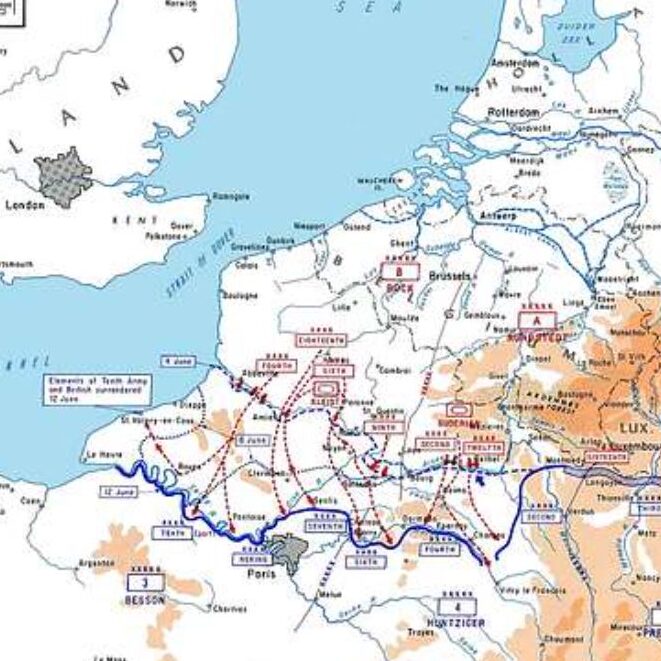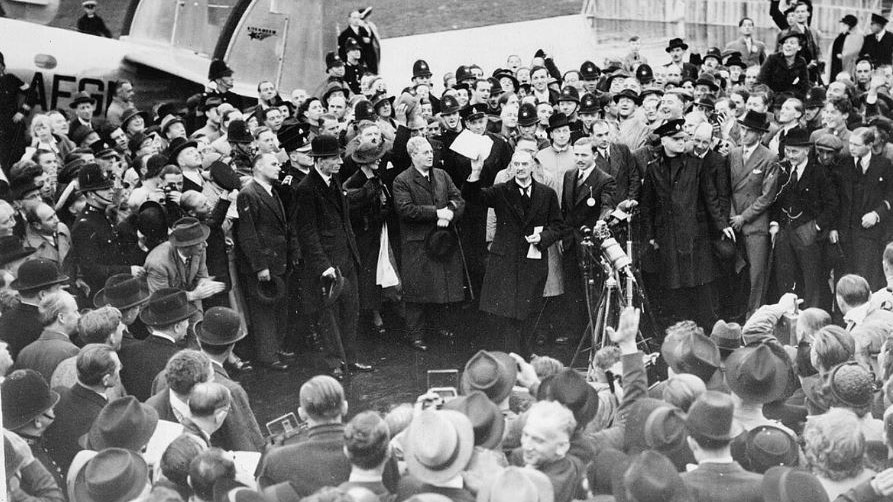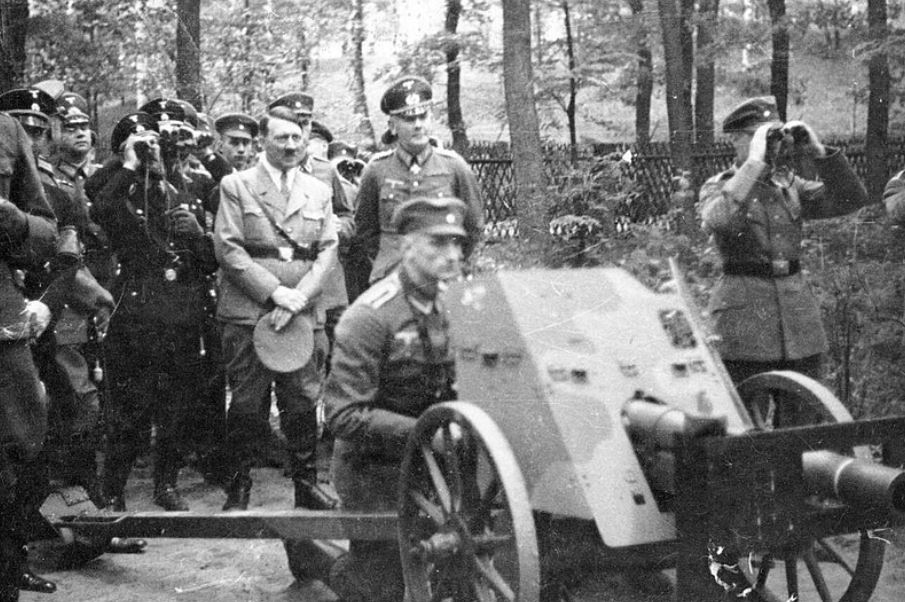In the spring of 1940, France, a nation long considered a major European power, fell to the German army in a matter of weeks. This stunning defeat early in World War 2 shocked the world and raised questions about how such a powerful country could be so easily swept aside.
From outdated equipment and defensive tactics to a divided political leadership, France was ill-prepared to face the German onslaught.
In this article, we will explore the reasons behind France’s rapid collapse in World War 2. We will examine the military, strategic, and political factors that contributed to this debacle.
- 1. France was Militarily Unprepared
- 2. How the Germans took advantage of France's transport infrastructure
- 3. Failure to anticipate the German attack through the Ardennes Forest
- 4. The Maginot Line
- 5. Failing to coordinate their military efforts with their British allies
- 6. Failing to adequately mobilize the French economy for war
- 7. Lack of French Unity
- 8. France’ Low morale
- 9. German Blitzkrieg Tactics
- 10. Timeline of the Fall of France
- 11. Could France Have Triumphed Over Germany in World War 2?
- Reasons why the bombing of the Ardennes would have been so effective
- 12. Why France lost so easily in World War 2: Final thoughts
- Further Reading
1. France was Militarily Unprepared
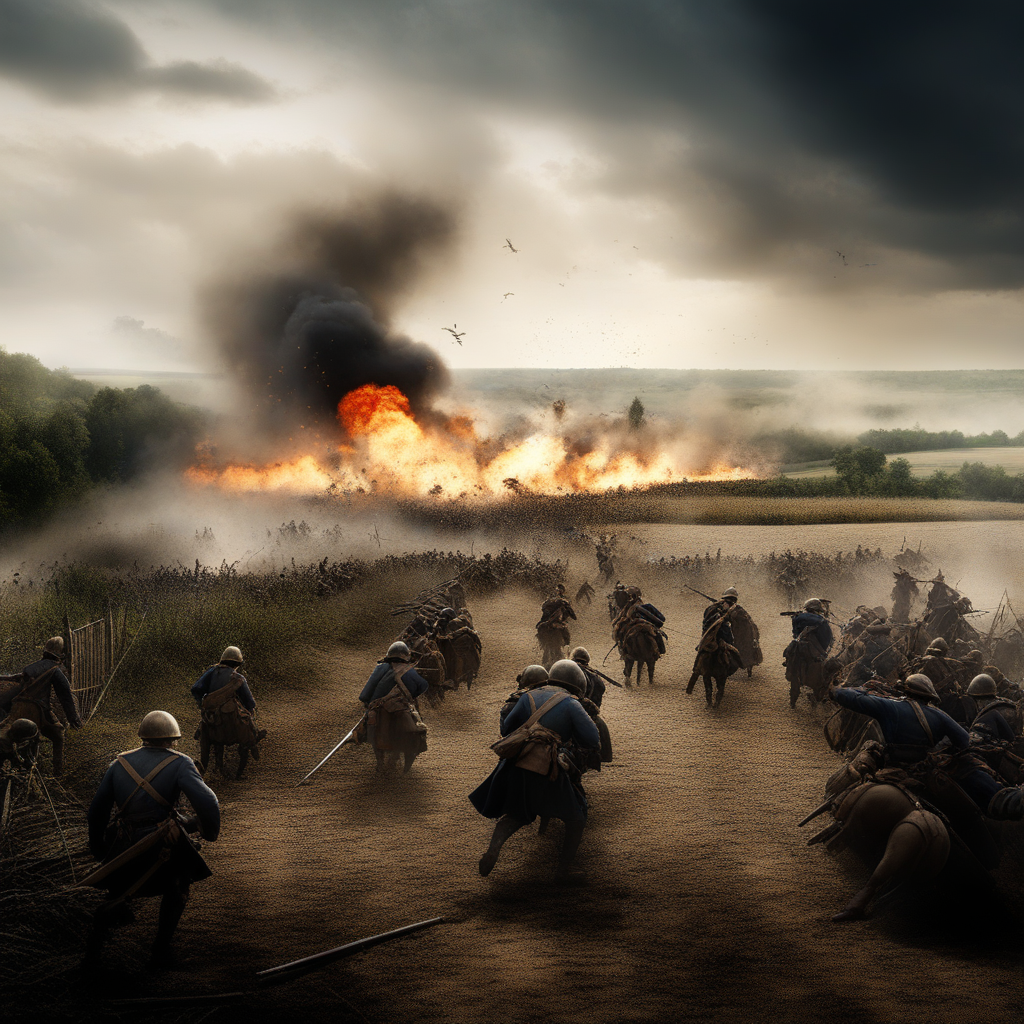
Despite having a large army, France’s military was woefully unprepared for the modern style of warfare that Germany unleashed in World War 2.
The French army was still largely equipped with weapons and tactics from the First World War, and it lacked the training and experience necessary to counter the German Blitzkrieg tactics.
One of the most glaring weaknesses of the French military was its lack of investment in new weapons and technologies.
The French army had a number of excellent tanks, but they were produced in small numbers and were not widely distributed among the troops.
The French air force was also inferior to the German Luftwaffe in terms of both and quality.
The French military also suffered from a lack of training and morale. The French army was still largely conscripted, and many of the soldiers had little training or experience. The officer corps was also top-heavy, with too many generals and not enough front-line officers.
As a result of these weaknesses, the French military was unable to effectively resist the German invasion.
The French tanks were no match for the German Panzers, and the French air force was quickly overwhelmed.
The French infantry was unable to hold back the German advance, and the French army was forced to retreat in disarray.
Specific examples of French military unpreparedness
- The French army still relied on horse-drawn artillery, while the Germans had largely motorized their artillery.
- The French tanks were inferior to the German tanks in terms of armor, firepower, and mobility.
- The French air force had fewer planes than the German Luftwaffe, and its planes were generally outclassed by the German aircraft.
- The French army lacked training in modern combat tactics, such as combined arms operations and mobile warfare.
- The French officer corps lacked experience in modern warfare.
These weaknesses were a major factor in France’s rapid defeat.
2. How the Germans took advantage of France’s transport infrastructure
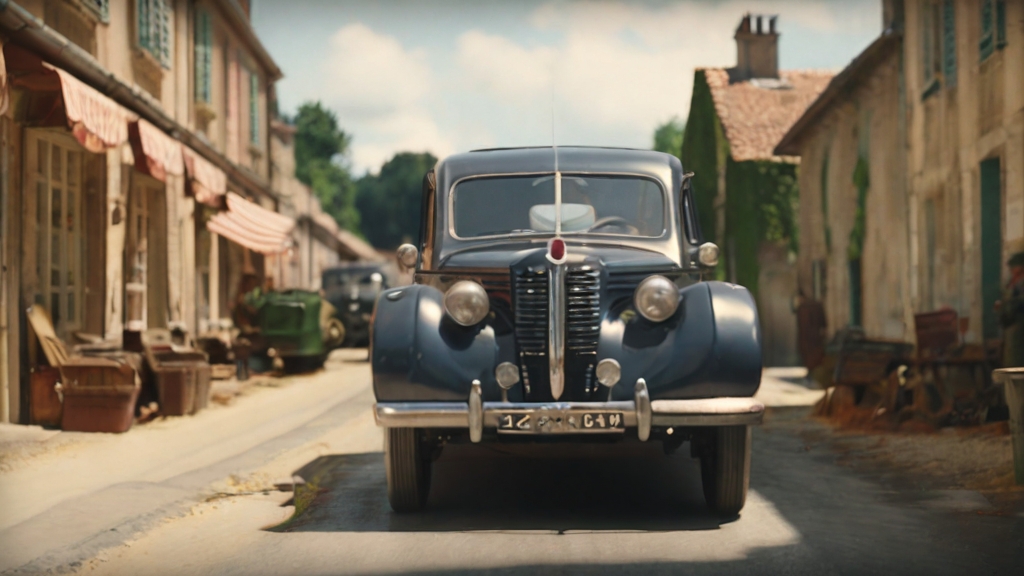
The Germans were able to take full advantage of France’s transport infrastructure to execute their Blitzkrieg strategy.
- Road network: The German army was highly motorized, and its tanks and other vehicles were able to move quickly and efficiently on the French road network. This allowed the Germans to rapidly advance through France, bypassing French defenses and encircling French armies.
- Petrol stations: The Germans also made use of France’s petrol stations to keep their vehicles fueled. At the time, France had the most comprehensive networks of fuel depots in Europe. This allowed the Germans to maintain a rapid pace of advance, even as they moved further away from their own supply lines.
- High vehicle ownership: Finally, the Germans commandeered many civilian vehicles to supplement their own transport fleet. France had one of the highest levels of car ownership in Europe. This gave German even more mobility and allowed them to move troops and supplies more quickly.
By exploiting France’s transport infrastructure, the Germans were able to:
- Move their troops and supplies quickly and efficiently.
- Bypass French defenses and encircle French armies.
- Maintain a rapid pace of advance, even as they moved further away from their own supply lines.
This played a major role in the success of the German Blitzkrieg and the defeat of France in World War 2.
3. Failure to anticipate the German attack through the Ardennes Forest

The French high command’s failure to anticipate the German attack through the Ardennes Forest was a critical error that contributed to France’s defeat in World War 2.
There were a number of signs that the Germans were planning to attack through the Ardennes.
French reconnaissance aircraft spotted a large build-up of German troops and equipment in the area, and there were reports from French intelligence agents that the Germans were planning to attack through the Ardennes.
However, the French high command ignored these warnings. They believed that the Ardennes was impassable to tanks, and they were overconfident in the strength of the Maginot Line. They also failed to send bombers over the Ardennes to bomb the German troop concentrations.
As a result, the Germans were able to launch their attack through the Ardennes without the French being aware of it. The French were caught completely by surprise, and they were unable to mount an effective defense.
The French high command’s failure to anticipate the German attack through the Ardennes Forest was due to a number of factors, including:
- Overconfidence in the strength of the Maginot Line.
- Underestimation of the capabilities of the German army and its new Blitzkrieg tactics.
- Slowness to react to intelligence reports that suggested that the Germans were planning to attack through the Ardennes.
- Failure to send bombers over the Ardennes to侦察the German troop concentrations.
The French high command’s failure to anticipate the German attack through the Ardennes Forest was a critical error that contributed to France’s defeat in World War 2.
4. The Maginot Line
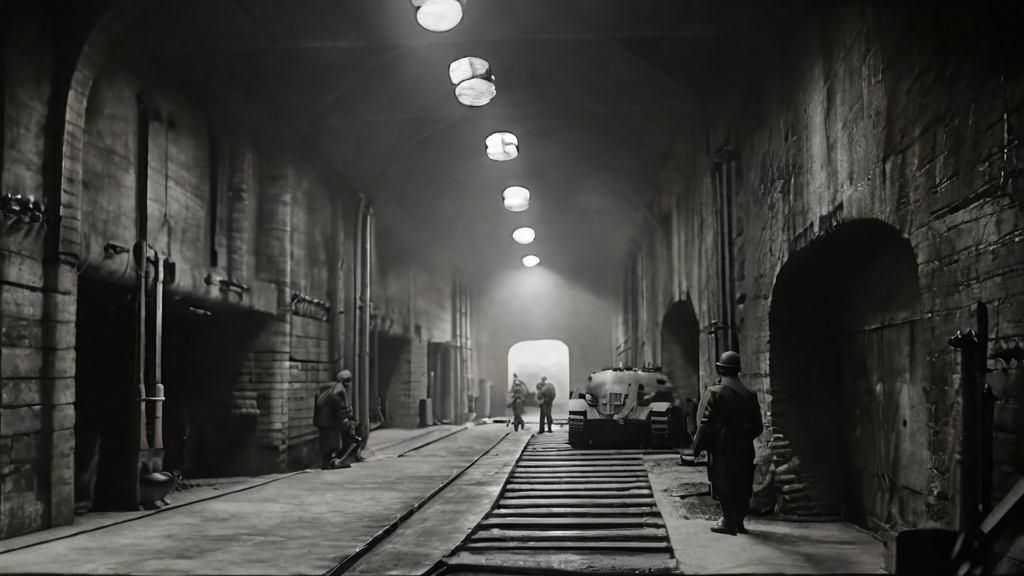
The Maginot Line was a system of fortifications that the French had built along their border with Germany. The key characteristics include:
- The Maginot Line was a massive undertaking, and it cost the French billions of francs to build.
- The Maginot Line consisted of a series of concrete forts, bunkers, and tunnels.
- The forts were armed with a variety of weapons, including machine guns, artillery, and anti-tank guns.
- The Maginot Line was also protected by a series of obstacles, such as barbed wire, minefields, and tank traps.
However, the Maginot Line had a number of weaknesses:
- The forts were too far apart to provide mutual support.
- The forts were vulnerable to attack from the air.
- The Maginot Line did not extend along the entire Franco-German border.
The French believed that the Maginot Line would be impregnable to German attack, but the Germans were able to bypass it by attacking through the Ardennes Forest.
The French also failed to adequately defend the Maginot Line, and many of the forts were poorly manned and equipped.
Summary of the reasons why the French failed to adequately defend the Maginot Line
- Overconfidence: The French were overconfident in the strength of the Maginot Line and believed that it would be impossible for the Germans to break through it.
- Underestimation of German capabilities: The French underestimated the capabilities of the German army and its new weapons, such as the 88mm flak gun.
- Poor coordination: The French failed to properly coordinate the defense of the Maginot Line with the defense of the rest of France.
- Inadequate manpower: The French did not have enough troops to adequately man all of the forts along the Maginot Line.
- Poor equipment: Many of the forts along the Maginot Line were poorly equipped and lacked adequate supplies of food, water, and ammunition.
As a result of these factors, the Maginot Line was unable to stop the German advance. The Germans were able to bypass the Maginot Line by attacking through the Ardennes Forest, and they were able to overrun the Maginot Line forts that they did encounter.
5. Failing to coordinate their military efforts with their British allies
The French and British had agreed to cooperate in the defense of France, but there was a lack of coordination between the two armies. This was due to a number of factors, including:
- Different strategies: The French and British had different strategies for defending against a German attack. The French planned to fight a defensive war, while the British planned to fight a more mobile war.
- Lack of trust: The French and British did not trust each other completely. The French were worried that the British would not come to their aid if Germany attacked, and the British were worried that the French would not be able to hold back the Germans.
- Poor communication: The French and British had poor communication between their two armies. This made it difficult to coordinate their military efforts.
As a result of these factors, the French and British armies were not able to effectively cooperate in the defense of France. This contributed to the French defeat in World War 2.
6. Failing to adequately mobilize the French economy for war
The French were slow to mobilize their economy for war.
The French government did not begin to mobilize the economy for war until after the German invasion of Poland in September 1939. This was due to a number of factors, including:
- Political instability: The French government was unstable in the years leading up to World War 2. The French government’s efforts to mobilize the economy were hampered by strikes and other forms of labor unrest. This made it difficult to implement the necessary economic reforms.
- Lack of planning: The French government did not have a clear plan for how to mobilize the economy for war.
- Industrial weakness: The French economy was not as strong as the German economy. This made it more difficult for the French to produce the weapons and supplies needed for war.
As a result of these factors, the French economy was not able to produce the weapons and supplies needed to fight a modern war. This contributed to the French defeat in World War 2.
7. Lack of French Unity
The French government and military were divided and indecisive in the face of the German invasion. This lack of unity hampered the French war effort and contributed to France’s defeat in World War 2.
Divisions within the French government
The French government was deeply divided in the years leading up to World War 2. There were a number of different political factions within the government, and these factions often disagreed on how to respond to the German threat.
One of the most significant divisions within the French government was between the left and the right.
The left-wing parties were generally more pacifist and less willing to confront Germany. The right-wing parties were more hawkish and more willing to take a strong stand against Germany.
This division between the left and the right made it difficult for the French government to agree on a coherent policy towards Germany.
The government was also weakened by the fact that it was constantly changing. There were a number of different prime ministers in the years leading up to World War 2, and each prime minister had his own different policies.
The French government was also divided on the issue of whether or not to evacuate the French population from the path of the German advance. This indecision led to chaos and confusion, and many French civilians were killed or captured by the Germans.
Indecision within the French military
The French military was also indecisive in the face of the German invasion. The French high command was divided on how to respond to the German attack. Some generals wanted to fight a defensive war, while others wanted to fight a more mobile war.
The French high command was also slow to react to the German attack. The Germans were able to advance deep into France before the French were able to mount an effective defense.
Lack of clear leadership and coordination
The lack of unity within the French government and military led to a lack of clear leadership and coordination. The French government was unable to provide the military with clear orders, and the military was unable to effectively coordinate its efforts.
This lack of clear leadership meant the French were unable to mount a coherent defense against the German attack, and they were quickly overrun.
8. France’ Low morale
The French population was not as motivated to fight as the Germans in World War 2. This was due to a number of factors, including:
- Disillusionment with the government: The French government was seen as corrupt and incompetent by many French people. This disillusionment was exacerbated by the government’s failure to prepare for war and its inability to effectively respond to the German invasion.
- Disillusionment with the war effort: Many French people did not believe that France could win the war against Germany. They were tired of war and they did not want to make the sacrifices that were necessary to defeat Germany.
- Fear of communism: Some French people were afraid that a German victory would lead to the spread of communism in France. This fear was particularly strong among the French upper classes.
Impact on French ability to resist German invasion
The low morale among the French population had a significant impact on the French ability to resist the German invasion. The French were not as willing to fight for their country, and they were more likely to surrender to the Germans.
This lack of motivation was evident in a number of ways. For example, the French army was plagued by desertions. Many French soldiers simply did not want to fight, and they abandoned their units.
The low morale among the French population also made it more difficult for the French government to mobilize the country for war. The government had difficulty recruiting new soldiers and raising taxes to pay for the war effort.
The French government tried to boost morale by launching a propaganda campaign, but this campaign was largely unsuccessful.
French Defeatism
The fall of Paris and other early defeats in the war led to a sense of defeatism among the French people. Defeatism is the belief that defeat is inevitable. It is a dangerous and self-fulfilling prophecy, as it can lead to a loss of will to fight and a collapse of morale.
- The rapid German advance: The German army advanced through France with astonishing speed. This led many French people to believe that it was impossible to stop the Germans.
- The fall of Paris: The fall of Paris, the French capital, was a major blow to French morale. It seemed to symbolize the end of French resistance.
- The memory of World War I: Many French people remembered the horrors of World War I. They were unwilling to endure another long and bloody war.
Defeatism had a significant impact on French morale and resistance efforts.
This defeatism led to a decline in the French will to fight. Many French soldiers surrendered to the Germans without putting up a fight. Others deserted from the army.
9. German Blitzkrieg Tactics
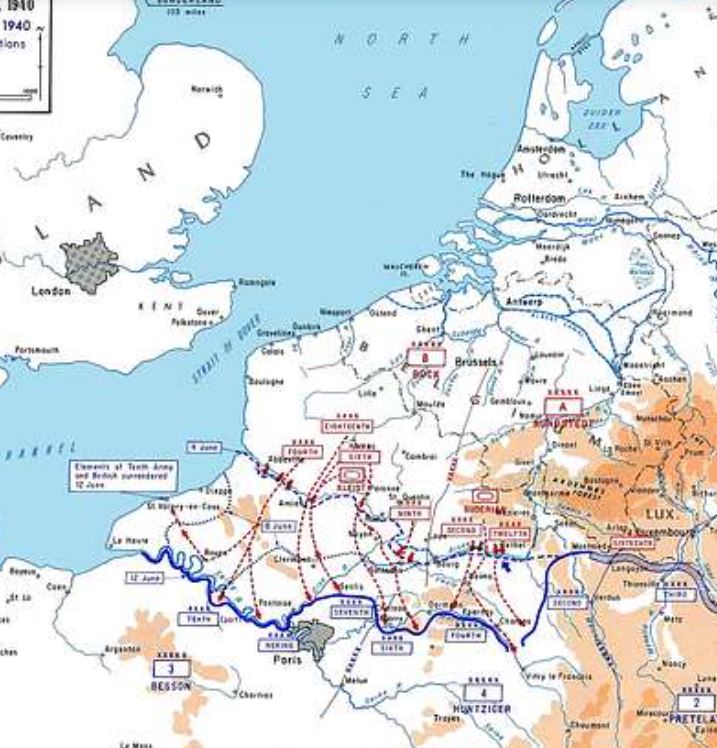
The German Blitzkrieg tactics were a new and innovative way of warfare that caught the French off guard. The Blitzkrieg tactics were based on the use of massed tanks, dive bombers, and infantry to quickly overwhelm enemy defenses.
- Massed tanks: The Germans used large numbers of tanks in their Blitzkrieg attacks. These tanks were used to break through enemy lines and to exploit any weaknesses in the enemy defenses. The German tanks were superior to the French tanks in terms of armor, firepower, and mobility.
- Dive bombers: The Germans also used dive bombers to support their tank attacks. These dive bombers were used to attack enemy positions and to provide close air support for the German ground troops. The German dive bombers were more accurate and effective than the French dive bombers.
- Infantry: The Germans also used large numbers of infantry in their Blitzkrieg attacks. These infantry were used to follow up the tank attacks and to occupy the territory that had been captured by the tanks. The German infantry were better trained and equipped than the French infantry.
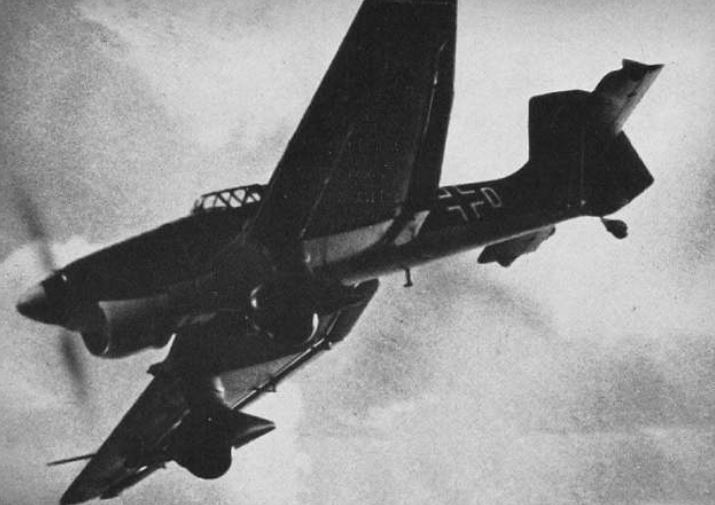
The Blitzkrieg tactics were highly effective against the French defenses.
The French were not prepared for the speed and power of the German attack. The German tanks were able to quickly break through the French lines, and the German dive bombers were able to destroy French fortifications and supply lines.
The French were unable to effectively counter the German Blitzkrieg tactics, and they were quickly overrun by the German army.
10. Timeline of the Fall of France
- May 10, 1940: Germany invades Belgium, the Netherlands, and Luxembourg.
- May 14, 1940: German forces reach the Meuse River in France.
- May 15, 1940: German forces break through the French defenses at Sedan.
- May 20, 1940: German forces reach the English Channel.
- May 26, 1940: The Belgian army surrenders to Germany.
- May 28, 1940: King Leopold III of Belgium goes into exile in France.
- May 29, 1940: The British Expeditionary Force (BEF) begins to evacuate from Dunkirk.
- June 4, 1940: The Dunkirk evacuation is completed.
- June 5, 1940: German forces enter Paris.
- June 10, 1940: The French government flees to Bordeaux.
- June 14, 1940: Germany occupies all of northern and western France.
- June 17, 1940: Marshal Philippe Pétain becomes the head of the French government.
- June 22, 1940: France signs an armistice with Germany.
The French Surrender to Germany
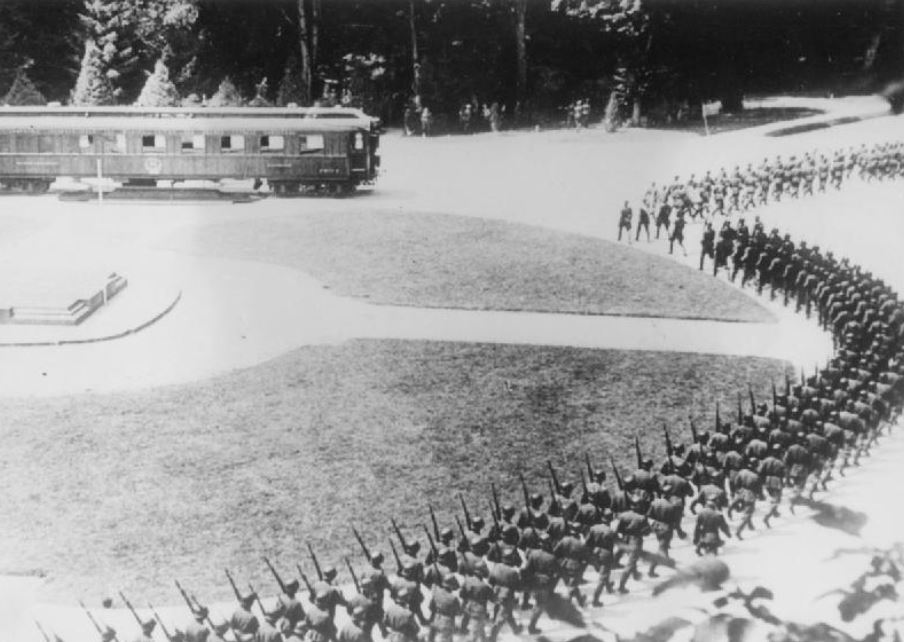
June 16, 1940: Prime Minister Paul Reynaud resigns after the French cabinet votes to seek an armistice with Germany.
Marshal Philippe Pétain becomes the new prime minister of France.
Appeasement and Desperation
Marshal Pétain, a war hero from a bygone era, harbored a belief in appeasement, convinced that further resistance against the overwhelming might of Germany would only lead to more devastation. Faced with a nation grappling with the harsh realities of war, Pétain argued for a path of negotiated peace.
June 17, 1940:Pétain delivers a radio address to the French people, telling them that it is necessary to cease fighting in order to avoid further bloodshed.
With a heavy heart, Pétain formally requested an armistice with Germany, signaling an acknowledgment of the dire situation and a desire to halt the bloodshed. The echoes of World War I resonated in this decision, as the hero of Verdun sought a different resolution for his country.
The French government flees to Bordeaux.
June 22, 1940: French and German representatives meet in the Forest of Compiègne to negotiate an armistice.
In a railway carriage in Compiègne, the same location where the 1918 armistice with Germany had been signed, France formally surrendered to the victorious German forces. The signing of the armistice marked the end of French resistance and the beginning of an occupation that would endure for years.
Terms of the Armistice
- France is divided into two zones: a German-occupied zone in the north and west, and a free zone in the south.
- The French government is allowed to remain in power in the free zone, but it is subject to German control.
- France must pay Germany a large sum of money in reparations.
- The French military is disbanded.
- France must surrender its colonies to Germany.
The armistice is a harsh and humiliating defeat for France.
11. Could France Have Triumphed Over Germany in World War 2?
It is highly unlikely that France could have triumphed over Germany in World War 2, even if it had made different choices and fought more effectively.
Germany had a number of advantages over France, including:
- Superior military strength: Germany had a larger and better-equipped army than France. The German army was also more experienced and had a more aggressive doctrine.
- Strategic initiative: Germany was the aggressor in the war and was able to dictate the terms of the fighting. France was forced to react to German moves, which put it at a disadvantage.
- Economic strength: Germany had a stronger economy than France. This allowed Germany to produce more weapons and supplies for its war effort.
- Political unity: Germany was a totalitarian state with a strong and centralized government. France, on the other hand, was a democracy with a divided government. This made it more difficult for France to make quick and decisive decisions.
However, one fateful decision, if reversed may have made a difference – the bombing of the German troops in the Ardennes.
The Ardennes was the main axis of the German attack, and the German army was heavily concentrated in this area.
Had the military leaders acted upon their intelligence the war could have taken a different direction.
Reasons why the bombing of the Ardennes would have been so effective
- Supply lines – The German army was highly reliant on its supply lines. A bombing campaign could have destroyed German supply depots, which would have made it difficult for the German army to continue its advance.
- Reduced Manoeuvrability – The Ardennes is a heavily forested area. This would have made it difficult for the German army to maneuver and to respond to air attacks.
- Surprise – The German army was not expecting to be attacked in the Ardennes. This would have made them more vulnerable to a surprise bombing attack and would have destroyed or disrupted the spearhead of their attack.
The bombing of the German troops could have delayed or even stopped the German advance, and it could have given the French and British armies more time to prepare their defenses.
The consequence of this failure was profound. The Germans, unimpeded by significant disruption from French airpower, launched their invasion with a level of freedom and audacity that played a pivotal role in the swift success of their campaign.
12. Why France lost so easily in World War 2: Final thoughts
Why did France lose so easily in World War 2? There is no single answer to this question. However, the factors discussed in this article provide some important insights.
One of the most important factors was France’s military unpreparedness. The French army was not prepared for modern warfare, and it was no match for the German army.
Another important factor was the lack of unity within the French government and military. This lack of unity made it difficult for France to mount an effective defense against the German invasion.
Finally, the German Blitzkrieg tactics were a major factor in France’s defeat. The Germans were able to use their superior tanks, dive bombers, and infantry to quickly overwhelm the French defenses.

